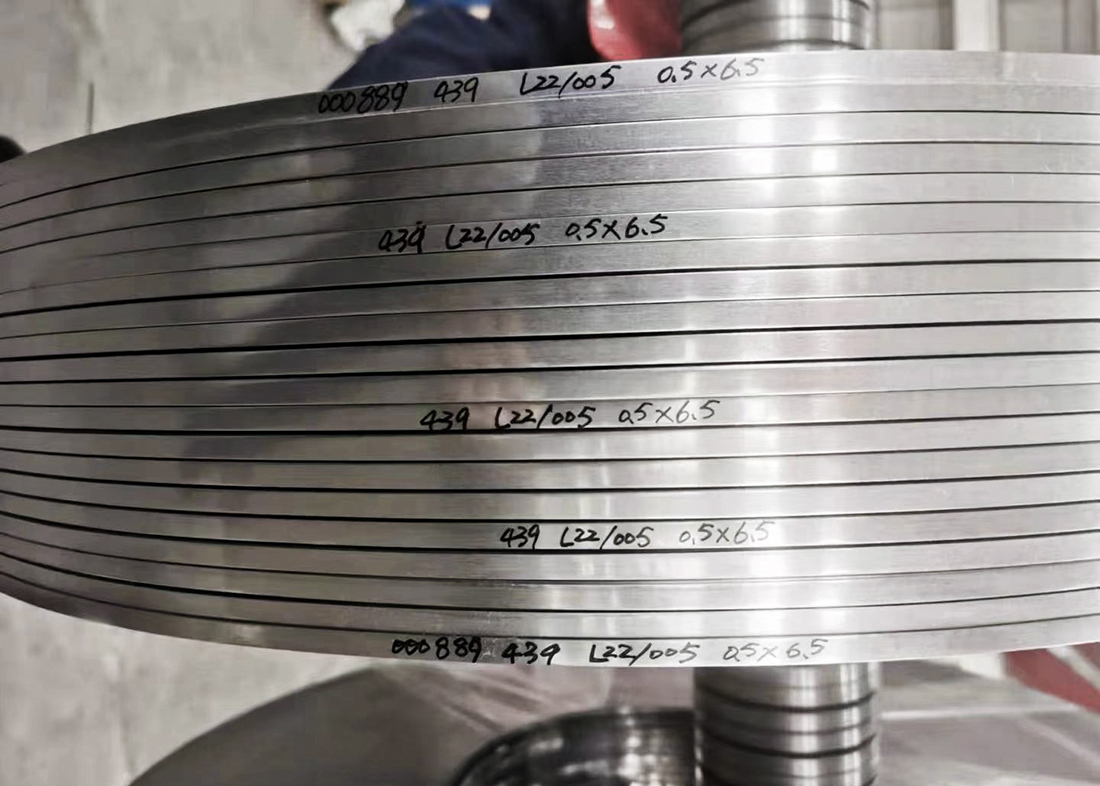
What are the applications of stainless steel strips in the chemical industry
source:spmresult.com | Release time:2024年10月30日1. Manufacturing of chemical equipment:
Reactor: Various chemical reactions in chemical production need to be carried out inside the reactor, and stainless steel strips can be used to manufacture reactor tanks, stirrers, and other components. For example, in some high-temperature, high-pressure, and highly corrosive reaction environments, reactors made of corrosion-resistant stainless steel strips can ensure the long-term stable operation of the equipment.
Storage tank: used for storing chemical raw materials, finished products, and various intermediate products. The good corrosion resistance of stainless steel strips can ensure that storage tanks will not be corroded or damaged in long-term contact with various chemicals, avoiding safety hazards such as leaks. For example, when storing highly corrosive liquids such as strong acids and alkalis, stainless steel storage tanks have significant advantages.
Heat exchanger: Heat exchange is often required in chemical production, and heat exchanger is one of the key equipment. Stainless steel strip has good thermal conductivity and can withstand the corrosion of the medium during heat transfer. It can be used to manufacture heat exchange tubes, plates and other components of heat exchangers, ensuring heat transfer efficiency and equipment reliability.
Towers:such as distillation towers and absorption towers, play an important role in chemical separation, purification, and other processes. Stainless steel strip can be used to manufacture the tower body, tray, packing and other parts of the tower. Its corrosion resistance and mechanical strength can meet the requirements of the tower in complex working conditions.
2. Pipeline system:
Transportation pipelines: Chemical production requires a large number of pipelines to transport various chemical substances, including liquids, gases, and slurries. The pipeline made of stainless steel strip has good corrosion resistance and sealing performance, which can ensure that chemicals will not leak or be contaminated during transportation. For example, in the petrochemical industry, many pipelines for transporting crude oil, natural gas, and various chemical products are made of stainless steel material.
Exhaust pipe: During the chemical production process, some exhaust gases may be generated, which may be corrosive or flammable and explosive. The exhaust pipe made of stainless steel strip can withstand the corrosion of exhaust gas while ensuring the safety and reliability of the exhaust system, avoiding the harm of exhaust gas leakage to the environment and personnel.
3. Mechanical components:
Pump impeller and shaft: Chemical pumps are key equipment used in chemical production to transport liquids, and their impellers and shafts need to withstand high-speed rotation and corrosion from chemical substances. Stainless steel strips can be processed into impellers and shafts for pumps, with high strength and corrosion resistance, ensuring long-term stable operation of the pump.
Valve core and body: Valves are used in chemical pipeline systems to control fluid flow and pressure, and the core and body are key components of the valve. The valve core and body made of stainless steel strip have good sealing and corrosion resistance, which can correctly control the flow of fluid and are not easily damaged during long-term use.
4. Instrumentation:
Sensor casing: Various sensors are required in the chemical production process to monitor parameters such as temperature, pressure, and flow rate. The sensor housing made of stainless steel strip has good corrosion resistance and mechanical strength, which can protect the electronic components inside the sensor from chemical erosion, ensuring the correctness and reliability of the sensor.
Dashboard panel: The dashboard panel in chemical production sites needs to have good corrosion resistance and pollution resistance, so that operators can clearly read instrument data. Stainless steel strips can be processed into dashboard panels to meet the requirements of chemical production.
5. Other applications:
Protective barriers and grilles: In chemical production sites, protective barriers and grilles need to be installed to ensure the safety of personnel. The protective fence and grille made of stainless steel strip have good corrosion resistance and strength, and can be used in chemical environments for a long time without rusting or damage.
Wire and cable protection sleeve: Wires and cables in chemical production sites need to be protected to prevent corrosion and mechanical damage from chemical substances. Stainless steel strips can be made into protective sleeves for wires and cables, providing reliable protection for them.
prev:
Application of Stainless Steel Strip in Electroni…
next:
Advantages and disadvantages of three polishing m…
【Related products】
+
 WeChat ID:spmresult.com
WeChat ID:spmresult.com

 WeChat ID:spmresult.com
WeChat ID:spmresult.com







 Add WeChat
Add WeChat
 Contact us
Contact us
 The phone
The phone